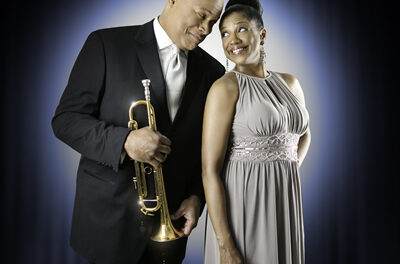In the summer of 1978, Leonard Rose, the great cellist and Juilliard faculty member, sent his most promising student to the Eastern Music Festival for solo and chamber music recitals. The administrators of the festival, many still in those same positions, recalled meeting this young cellist and described the force of his larger-than-life personality as well as his obvious musical expertise. That young man was Yo-Yo Ma. Thirty-one years have passed and the EMF has finally rebooked this megastar of the music world – although perhaps not in the context that many of the sold-out audience would have liked. Mr. Ma appeared for this one evening at Greensboro’s cavernous War Memorial Auditorium as the first guest of the 2009-10 Bryan Series, sponsored by both EMF and Guilford College. This lecture series is titled “The American Experience” and Yo-Yo named his talk “Creating a Life with Music.”
All the ads and publicity for this event were careful to explicitly say, in some manner, that Mr. Ma would play “a brief musical selection” in addition to his talk. It is a testament to his stature not only as a musician, but a humanitarian and cultural ambassador to the entire world, that thousands of people would pay handsomely to attend an event where no one was exactly sure what would take place, but it was known that this would definitely not be a recital. After several thankfully brief speeches, Yo-Yo Ma strode out with his priceless cello and began his talk.
As if to assuage people’s fear that he may not play at all, Ma began by asking the audience to listen to the following contrasting works and examine how each made them feel. He then played the Prelude and Sarabande movements of Bach’s first cello suite and used the collected responses from the audience as a jumping off point to discuss his musical development as a child as well as how music affects us all. He even re-played the prelude and invited a young cellist on stage to play a pedal point at the climactic moment to illustrate tension and release in music.
He spoke quite candidly of several teachers’ influences on him and how he had to grow as an empathetic person and “get over” his technical gifts as the end-all to musical performance. He is a firm believer that a performing musician is the representative of the composer and that you must delve as deeply as you can into his/her life, intentions and personal experiences surrounding the composition.
For me, one of the most interesting stories of the evening was his description of his initial rehearsals with violinist Mark O’Connor and bassist Edgar Meyer in the early 1990s in preparation for the recording of their hugely successful CD Appalachia Waltz. Ma thought it was going wonderfully, but when asked, O’Connor stunned Ma by criticizing his sound, intonation and articulation – this to the most celebrated musician in the world! O’Connor explained that in this style of playing you must adapt to traditions, different cultures, and even discard western-centered piano temperament and intonation. Instead of taking offense, Ma took this as a call to re-awaken his musical education and served as an impetus for his eventual forming of the Silk Road Ensemble, a group whose purpose is to work with musicians from all the world’s cultures and share their musical ideas and customs.
As the evening wore on, one began to sense a bit of weariness or disinterest seeping into the masses, perhaps some anxious to hear more playing and some undoubtedly there for celebrity worship. Ma is a marvelous storyteller and a charming and humble man, but he has not yet attained the dynamism and force of a musical lecturer like Leonard Bernstein was. I have experienced several cello master classes with Ma and all cellists hang on every word and are enthralled by every concept and idea he presents, but balancing an evening’s talk to a general audience is a tough act to please all the people all of the time. So, at the end he generously gave us more than the “brief selection” and played the entire first cello suite of J.S. Bach. You could just sense the renewed attention as everyone was transfixed on this one man playing to a mammoth crowd as if each of us were being spoken to intimately and directly.
The evening ended with Mr. Ma answering questions submitted on cards by the audience for about 20 minutes. Some were quite insightful, but many were of the “what’s your favorite piece” variety that Ma deftly sidestepped with answers that magnified and dignified his philosophy that all music needs to be respected and presented with your full belief and empathy. If not that, then why are you playing?











